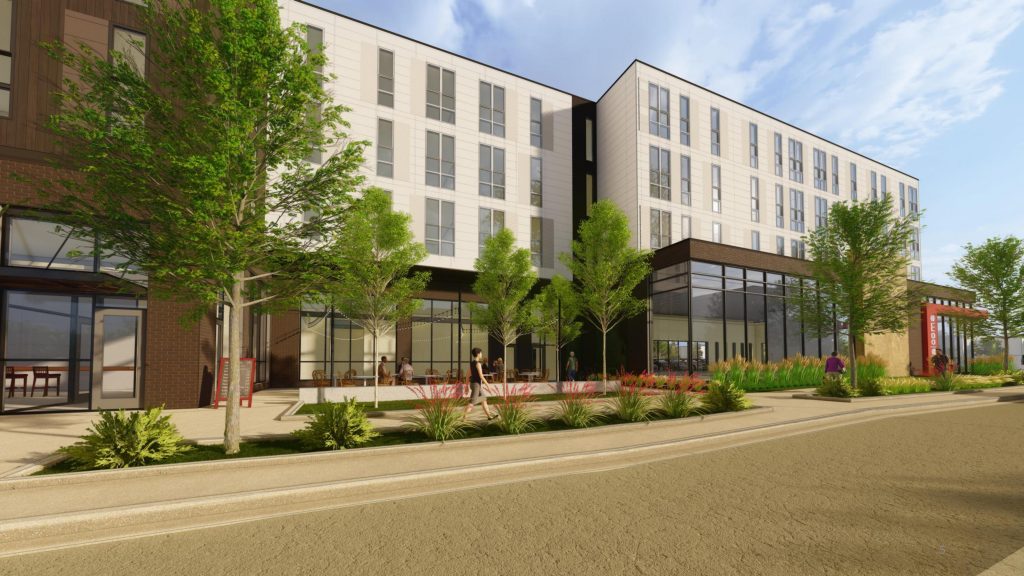Milwaukee Needs Commitment to Workforce Housing
City needs policies to address shortage of 'middle housing' for working people.
Jeramey Jannene’s recent article in Urban Milwaukee highlights a growing crisis in our city’s housing landscape—one that we, as small-scale developers, experience firsthand. The truth is simple: despite our commitment to building in Milwaukee, we are struggling to deliver the workforce or middle income housing this city so urgently needs. Unless Milwaukee rethinks how it deploys its economic development tools—particularly Tax Increment Financing (TIF)—this crisis will only deepen.
When we talk about “middle housing,” we’re not referring to an architectural style or design trend. We’re talking about housing for those in the financial middle—Milwaukeeans earning around 80% to 100% of the county’s $71,000 median income. These are our teachers, bus drivers, healthcare workers, and retail employees—the essential workforce that keeps Milwaukee running. Yet, increasingly, they can no longer afford to live in the city they serve.
The demand for this type of housing has never been greater. At the same time, the economics of building it have never been more challenging. Since 2020, construction costs have surged by over 40%, and interest rates on borrowing have nearly doubled—from approximately 4% to over 7% today. While rents have increased, they have not kept pace with the rising costs of development. As a result, small developers like us are caught in an impossible position—projects simply don’t pencil out without some form of public-private partnership.
In many cases, that partnership must include TIF support.
All too often, TIF is seen as a tool exclusively for large-scale or catalytic downtown projects. While it has played a critical role in both economic development and affordable housing, TIF was created to generate public good through private investment. There is arguably no greater public good right now than providing safe, affordable, and well-located housing for working people.
By extending TIF support to workforce housing, Milwaukee could begin to fill the growing gap between deeply subsidized affordable housing and high-end market-rate developments. The so-called “missing middle” represents more than just a gap in housing types—it’s a gap in income eligibility. Individuals and families earning $57,000 to $71,000 per year don’t qualify for subsidized housing, yet they cannot reasonably afford $2,000-a-month market-rate rents. These are residents being priced out of neighborhoods they’ve called home for years.
This is not a sustainable path forward.
Milwaukee must move beyond simply acknowledging this problem—it must act. That means prioritizing workforce housing in TIF policy, streamlining zoning and permitting processes for infill development, and expanding access to low-cost capital for small and mid-sized developers. We need to recognize that housing is infrastructure—and that middle-income housing is as critical to Milwaukee’s future as roads, schools, and transit systems.
Let’s be clear: without a stable supply of workforce housing, the broader housing market suffers. Pressure builds at the bottom, displacing our most vulnerable residents and destabilizing neighborhoods across the city.
Milwaukee has the tools to address this challenge. But doing so will require political will and a deeper understanding of the financial realities that small developers face today. Let’s use TIF—and every resource available—to build a housing ecosystem that works not just for some, but for all Milwaukeeans.
We care deeply about contributing to Milwaukee’s growth in a responsible and inclusive way, and we believe that small developers can play a meaningful role in creating more housing and stronger neighborhoods. It’s encouraging to see that the City is open to dialogue and willing to revisit and refine policy—this kind of collaboration is essential for progress. We look forward to continuing the conversation and being a part of the solution.
Ryan Pattee is a community-minded real estate developer focused on small-scale, neighborhood-driven projects.
Shar Borg is a founding principal agent of Compass Real Estate, Wisconsin. She specializes in helping clients acquire housing for both rent and purchase. She has been a Sherman Park resident for more than 25 years.
Pattee and Borg are pursuing a four-story, 56-unit mixed-use project on E. North Avenue.
If you think stories like this are important, become a member of Urban Milwaukee and help support real, independent journalism. Plus you get some cool added benefits.
Op-Ed
-
Wisconsin Candidates Decry Money in Politics, Plan to Raise Tons of It
 Dec 15th, 2025 by Ruth Conniff
Dec 15th, 2025 by Ruth Conniff
-
Trump Left Contraceptives to Rot; Women Pay the Price
 Dec 8th, 2025 by Dr. Shefaali Sharma
Dec 8th, 2025 by Dr. Shefaali Sharma
-
Why the Common Council’s Amended Budget is Good Policy for Milwaukee
 Nov 20th, 2025 by Alds. Marina Dimitrijevic and Russell W. Stamper, II
Nov 20th, 2025 by Alds. Marina Dimitrijevic and Russell W. Stamper, II





















